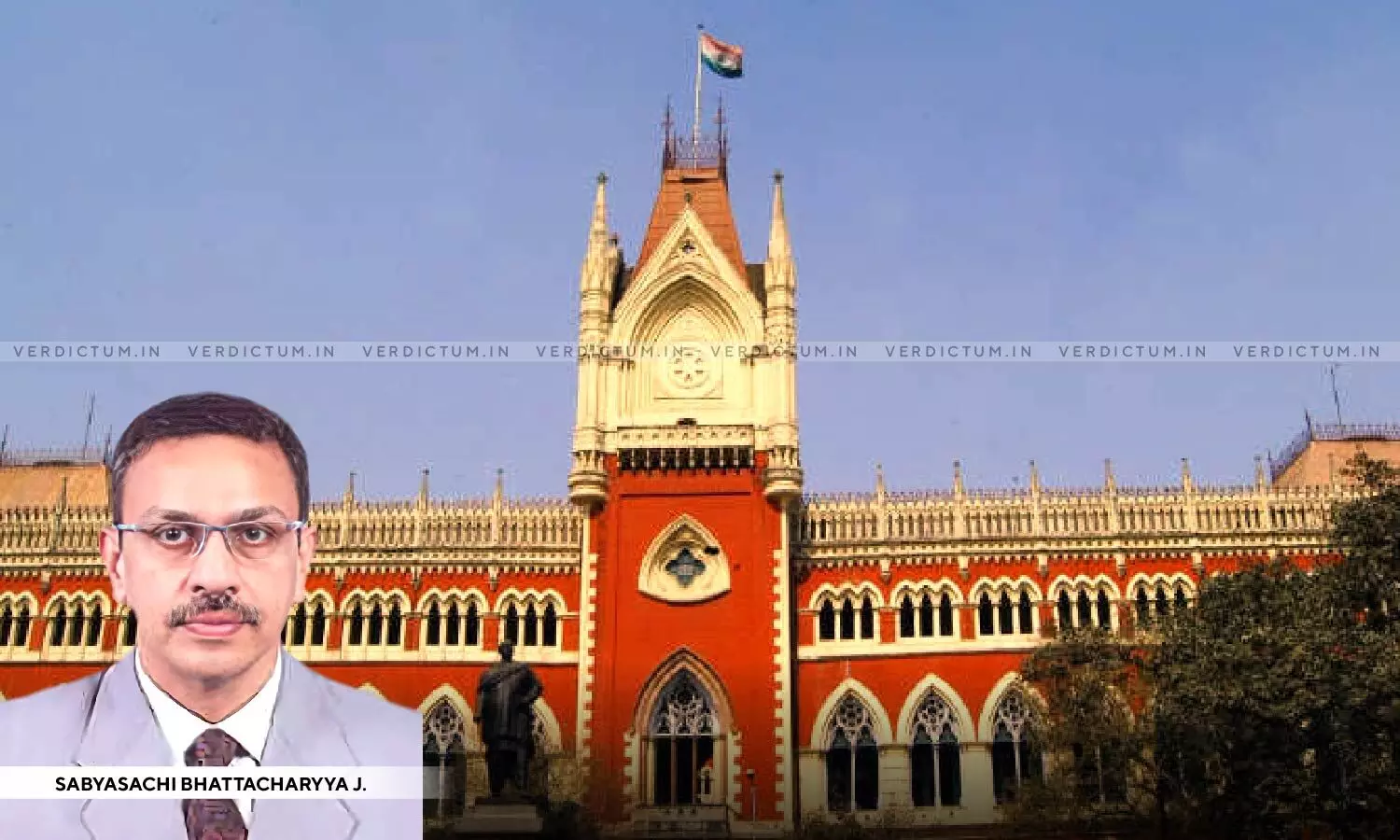
Justice Sabyasachi Bhattacharyya, Calcutta High Court
Calcutta High Court Strikes Down Electricity Regulatory Commission’s Regulation Conferring Unbridled Power On Licensee To Restrict Drawal & Overcharge
 |
|The Petition before the Calcutta High Court challenged the vires of Regulation 4.4 of the West Bengal Electricity Regulatory Commission (Terms and Conditions of Tariff) Regulations, 2011.
The Calcutta High Court has struck down Regulation 4.4 of the West Bengal Electricity Regulatory Commission (Terms and Conditions of Tariff) Regulations, 2011 in light of the fact that it confers unbridled power on the licensee to restrict electricity drawal to a limit of its own choice and overcharge on such pretext.
The first petitioner-Company, a consumer of electricity from the Damodar Valley Corporation (DVC), in the State of West Bengal approached the High Court challenging the vires of Regulation 4.4 of the West Bengal Electricity Regulatory Commission (Terms and Conditions of Tariff) Regulations, 2011 framed by the West Bengal Electricity Regulatory Commission (WBERC). The second limb of the challenge was against the charges levied by the DVC for overdrawal of electricity above the restricted drawal limit fixed by the DVC for a particular period.
The Single Bench of Justice Sabyasachi Bhattacharyya said, “Thus, Regulation 4.4 does not prohibit excess drawal of electricity at all. What it does is confer unbridled power on the licensee to restrict drawal to a limit of its own choice and overcharge on such pretext. Nothing in Regulation 4.4 prevents the consumer from overdrawing to jeopardise the grid stability but it merely imposes a penal charge for doing so.”
Advocate Surajit Nath Mitra represented the Petitioner, while Senior Advocate Pratik Dhar represented the Respondents.
Reasoning
The Bench explained that Regulation 4.4 pertains to the regulation of tariffs for electricity consumed within the state of West Bengal. The additional charge levied is on overdrawal of electricity at the consumer’s end and not on the interstate transmission of electricity. It was further observed that although the DVC is an inter-state operator in the field of generation and transmission of electricity, the Regulation under consideration relates to consumption of electricity within the state and, thus, it comes well within the powers of the WBERC, which is the State Commission in West Bengal, to impose such tariff within the parameters of Section 61, read with Section 181 of the Electricity Act.
The Bench noticed that Regulation 4.4, permits arbitrary restriction by the licensee regarding drawal, without providing any guideline whatsoever as to the reasons or the period for imposition of such restriction. Nothing is enumerated in the Regulation or elsewhere in the WBERC Regulations regarding the grounds and situations in which such a restriction can be imposed. It also confers unbridled power on the licensee to violate such contract demand clause and, at its own whims, to arbitrarily restrict drawal even below the contract demand limit, since there is nothing in Regulation 4.4 to restrict the imposition of restricted drawal limits up to the contract load and above.
It was further explained that the second infirmity in Regulation 4.4 is that it grants unbridled power on the licensee to choose when and how long to impose restricted drawal, without specifying any specific ground or guideline for such imposition. Nothing in Regulation 4.4 prevents the consumer from overdrawing to jeopardise the grid stability but it merely imposes a penal charge for doing so.“Hence, Regulation 4.4, in the absence of guidelines, is implicitly arbitrary and violative of Article 14 of the Constitution of India as well as all principles of natural justice”, it added.
The High Court was of the view that the the absence of powers of sub-delegation within the contemplation of Sections 61 and 181 of the Electricity Act is overreached by Regulation 4.4, which sub-delegates to the licensee the power to determine its tariff and double the same merely by regulating the drawal limits at any given point of time. “...this Court is of the clear opinion, based on the very nature of the impugned Regulation, that Regulation 4.4 of the WBERC (Terms and Conditions of Tariff) Regulations, 2011 is ultra vires the Constitution and contravenes core principles of natural justice and is violative of Articles 14 and 19 of the Constitution of India, being patently arbitrary and devoid of any guidelines for exercise of power under the said provision by the licensee”, it held.
Partly allowing the appeal, the Bench struck down Regulation 4.4 of the 2011 Tariff Regulations framed by the WBERC as ultra vires. “However, the WBERC will be at liberty to frame appropriate fresh Regulation(s) for curbing excess drawals which might jeopardise the grid stability”, it concluded.
Cause Title: Metsil Exports Private Limited and Another v. West Bengal Electricity Regulatory Commission and Others (Case No.: W.P.A. No.4669 of 2023)
Appearance:
Petitioner: Advocates Surajit Nath Mitra, Tanoy Chakraborty, Siddharth Shroff
Respondents: Senior Advocate Pratik Dhar, Advocates Ritwik Pattanayak, Abhrotosh Majumdar, Prasun Mukherjee, Deepak Agarwal